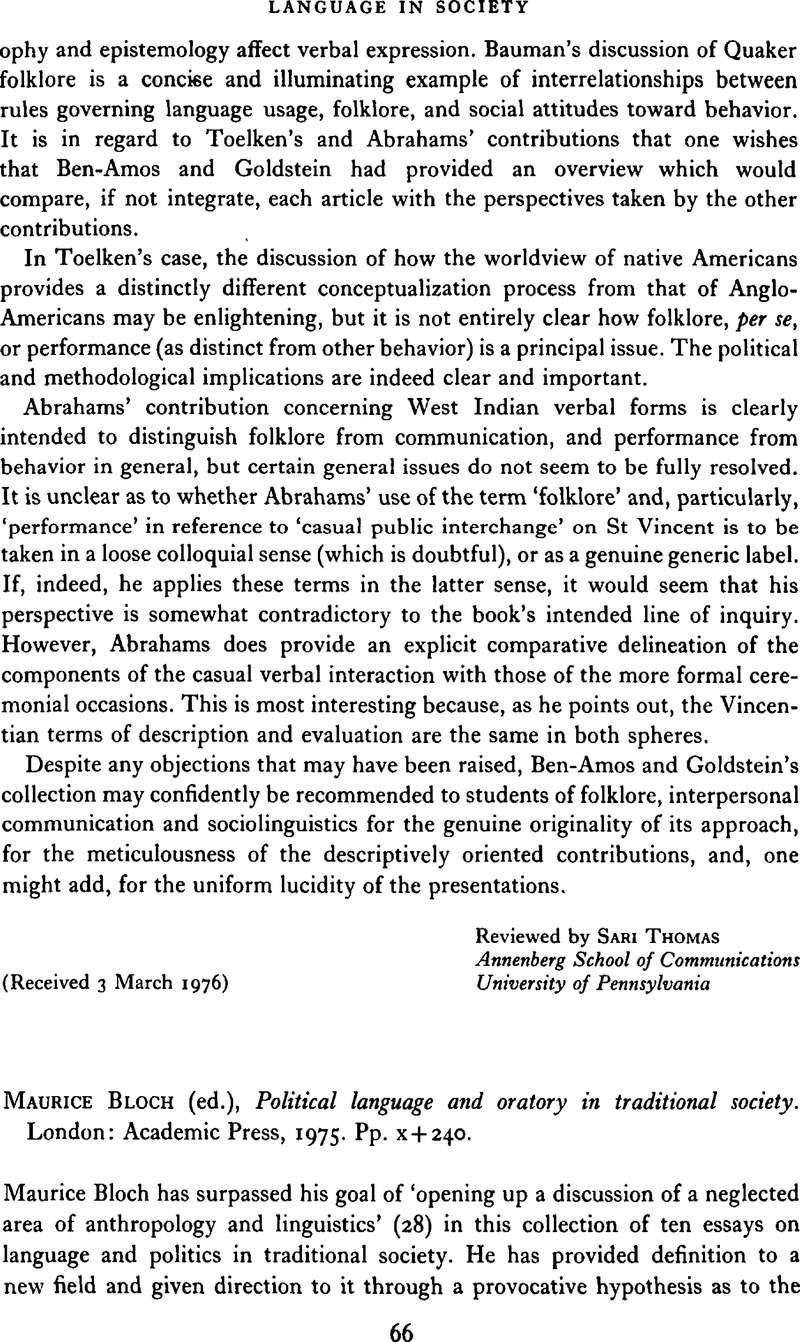No CrossRef data available.
Article contents
Maurice Bloch (ed.), Political language and oratory in traditional society. London: Academic Press, 1975. Pp. x + 240.
Review products
Maurice Bloch (ed.), Political language and oratory in traditional society. London: Academic Press, 1975. Pp. x + 240.
Published online by Cambridge University Press: 18 December 2008
Abstract
An abstract is not available for this content so a preview has been provided. Please use the Get access link above for information on how to access this content.

- Type
- Book Review
- Information
- Copyright
- Copyright © Cambridge University Press 1977
References
REFERENCES
Bernstein, B. (1971). Class, codes and control. Vols I, II, III. London: Routledge and Kegan Paul.Google Scholar
Devereux, G. (1967). From anxiety to method in the behavioral sciences. The Hague: Mouton.CrossRefGoogle Scholar
Fortes, M. & Evans-Pritchard, E. E. (eds) (1940). African political systems. London: Oxford.Google Scholar
Hymes, D. (1970). Linguistic aspects of comparative political research. In Holt, R. T. and Turner, J. E. (eds), The methodology of comparative research. New York: Free Press. 295–341.Google Scholar
Veegelin, C. F. (1960). Casual and noncasual utterances within unified structure. In Sebeek, T. A. (ed.), Style in language. Cambridge: M.I.T. Press. 57–68.Google Scholar


